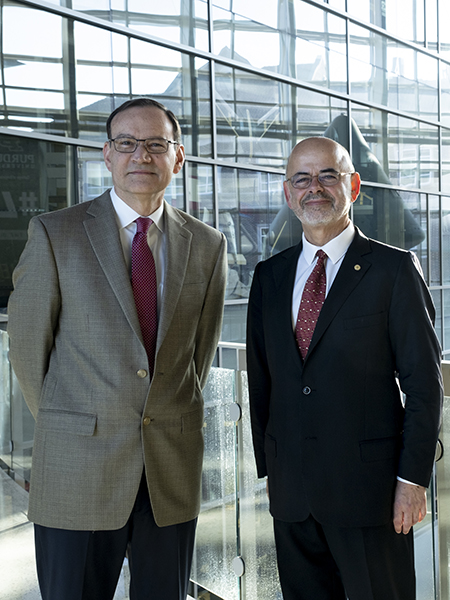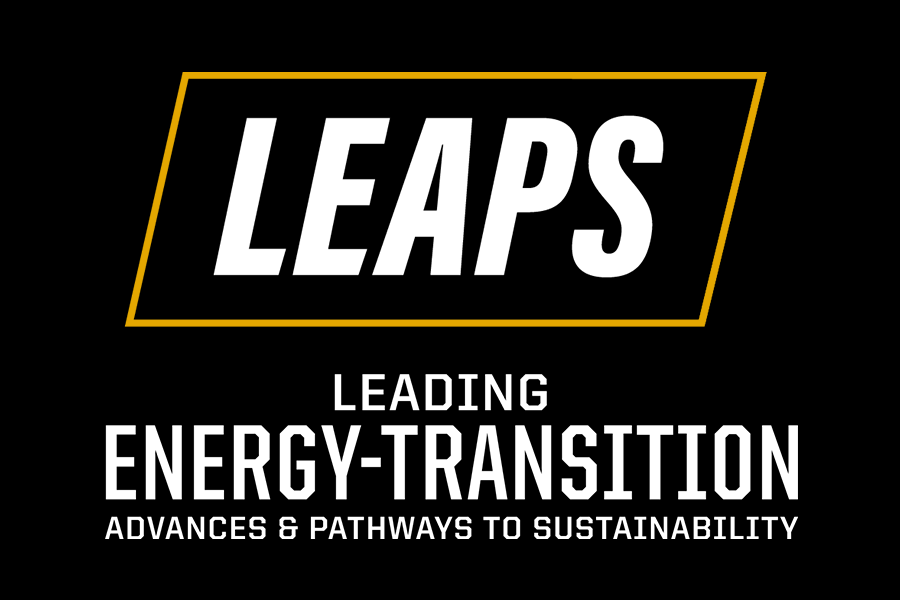Purdue's next giant leap: Energy Transition, empowering future engineers and entrepreneurs to create sustainability
The spirit of innovation propelling Purdue alumnus Neil Armstrong’s giant leap for mankind continues to drive Purdue’s College of Engineering community. Today, the generation and use of sustainable, affordable and reliable energy is one of the grandest challenges for our planet. With the launch of the newest Purdue Engineering Initiative — Leading Energy-Transition Advances and Pathways to Sustainability (LEAPS) — the university is stepping up to a new level of research and education innovation that will cross disciplines, link campus expertise and empower future engineers and entrepreneurs.
The initiative will focus on those topics that are especially relevant to Indiana and the Midwest in particular. For example, energy transformation must play a central role in our largest economic driver: the manufacturing sector. With one of the nation’s highest concentrations of manufacturing jobs per capita and over $40 billion in exports of manufactured goods, according to the National Association of Manufacturing, Indiana must fill the rapidly growing demand for power, products and processes that are consonant with the energy transition in order to retain and attract Hoosier-grown businesses. Similarly, Indiana and the Midwest will play a major role in the hydrogen economy, nuclear energy, renewables and energy grids – all areas in which the LEAPS initiative will catalyze partnerships between Purdue, the state and industrial partners.

LEAPS is dedicated to empowering and engaging faculty and colleagues. The primary goal is to assist in curriculum development, facilitate large-scale funding opportunities, create connections with industry, develop scalable energy transition technologies and foster academic-industry collaborations.
“Through LEAPS and other leading research initiatives at Purdue, we will spark and nurture innovations to create scalable technologies for the energy transition, transform the nature of energy-focused learning and accelerate academic-industry collaborations,” said Arvind Raman, the John. A Edwardson Dean of the College of Engineering.
The goal is to strengthen a robust intellectual property portfolio that can engineer power systems, products and processes for a sustainable energy transition that creates a global decarbonized economy that enables economic vitality and wellbeing for everyone, said Fabio Ribeiro, the William Nicholas and Elizabeth Holstein Delgass Distinguished Professor of Chemical Engineering, director of the National Science Foundation-funded Engineering Research Center for Innovative and Strategic Transformation of Alkane Resources and co-chair of LEAPS.
“Currently energy is largely fueled by low-cost, reliable and abundant energy carriers and 80% is derived from the energy stored within fossil fuels,” Ribeiro said. “The existing energy infrastructure, developed over a century ago, has ensured the affordability and reliability of this energy. The additional imperative for sustainability presents an almost insurmountable challenge. But at Purdue, we're leading the charge towards a sustainable future.”
Joining Ribeiro as co-chair is Lefteri Tsoukalas, professor of nuclear engineering who leads the Center for Intelligent Energy Systems at Purdue. He said that at Purdue excellence is not a one-time act but a habit.
“In the spirit of Neil Armstrong’s famous words, humanity is taking a giant leap forward in the energy transition space and Purdue Engineering will be there to help,” Tsoukalas said. “LEAPS will provide a panoply of excellent tools for the energy transition. Together, we can craft a legacy of stewardship for our planet.”
Purdue Engineering Initiatives (PEIs) — including current initiatives in Autonomous and Connected Systems, Cislunar Space, Engineering Medicine, and eXcellence in Manufacturing and Operations — are virtual organizational structures that engage faculty and colleagues from other Purdue colleges to nurture programs in research and learning. They serve to launch major research and education communities and centers, as well as create educational majors and minors and certificates for on-campus and online undergraduate and graduate students. The PEIs also stimulate industry and government partnerships, generate thought leadership and IP, and accelerate bring-to-market scale and commercialization.

